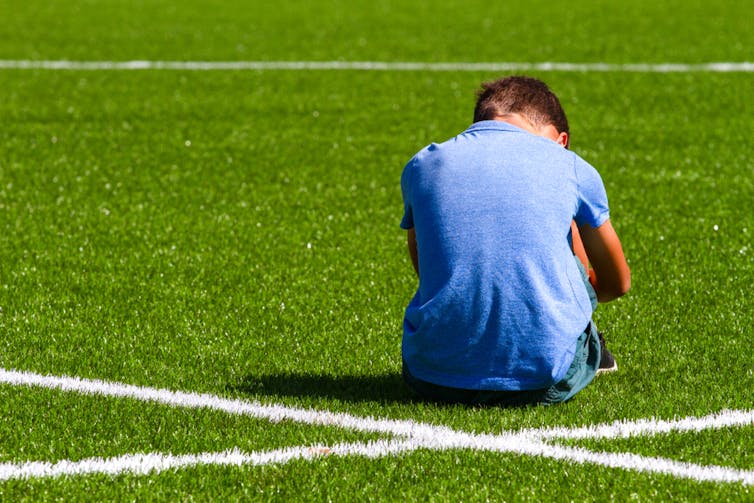What the David Beckham documentary tells us – and what it doesn't – about controlling parents in sport
- Written by The Conversation

In the Netflix documentary Beckham, the footballer is asked how he coped with the abuse of his entire country after the 1998 men’s football World Cup. David Beckham responds:
I was able to handle being abused by the fans […] because of the way my dad had been to me.
A poignant scene shows Beckham’s mother Sandra struggling with how hard his father Ted was on their son. Ted’s shouting often brought David to tears. When asked if he was too tough on David, Ted says:
No […] if I told him how good he was, then he’s got nothing to work at.
Throughout the documentary, Ted’s behaviour is rationalised by Ted and even Beckham himself as necessary to support David’s sporting trajectory. But David also said he was scared of his father’s feedback and felt compelled to practise for hours every day.
Other athletes with similar stories include Tiger Woods, Andre Agassi and Australian Jelena Dokic.
Too often, controlling behaviour by parents is portrayed as necessary for success as an athlete. But the evidence shows this idea is false. In fact, such an approach can be detrimental to both a child’s chances of sporting success and their wellbeing.
And it’s not just a problem with elite sport; our research shows it’s also occurring with community sport.
Read more: Winning at all costs – how abuse in sport has become normalised
What we found
Our research found about one in three people we surveyed said they’d experienced abuse by a parent during their time in Australian community sport.
Psychological abuse by parents was reported by just under a third of our respondents, and included behaviours such as:
The controlling and abusive behaviours described above have been consistently normalised by parents, coaches and sporting organisations as being necessary to create “mentally tough” athletes ready for high-level competition.
Read more: Why taking a trauma- and violence-informed approach can make sport safer and more equitable
However, there is no evidence abusive and controlling behaviours have a positive impact on performance.
Instead, there is ample evidence to indicate it:
Research shows when adults in community sport use what’s known as an “autonomy-supportive approach” – in which young people are empowered to make their own decisions and have their feelings validated – children can be more self-motivated.
An experiment at the 2012 Olympic Games found coaches with a more supportive approach achieved higher medal tallies than those who did not.
Most of this evidence has focused on coaching, but given many parents act as coaches for their children, these findings remain relevant.
Putting children’s experiences first
There is no evidence that controlling or abusive practices improve children’s performance in sport. But even if there was, sport performance should not be valued above a child’s health and wellbeing.
These behaviours would not be tolerated in different environments, such as workplaces or schools.
It’s time to move on from this debate in sport. So where to from here?
The sport system is complex, and while it’s easy to think it’s just a few problematic people, the reality is these practices have been normalised for generations.
Parents are repeating patterns from their own experiences and mirroring practices they see as normal in elite sport. There is no quick fix.
But we can all play a part by reflecting on our own behaviours and considering how we can prioritise children’s experiences and wellbeing.
Parents should focus on fun, learning new skills, enjoying the moment, and being part of a team so their kids can get the most out of the games they love.
Despite Beckham himself suggesting it was all worth it, the evidence suggests he was successful in spite of the high-pressure home environment, not because of it.
Read more: In sport, abuse is often dismissed as 'good coaching'







